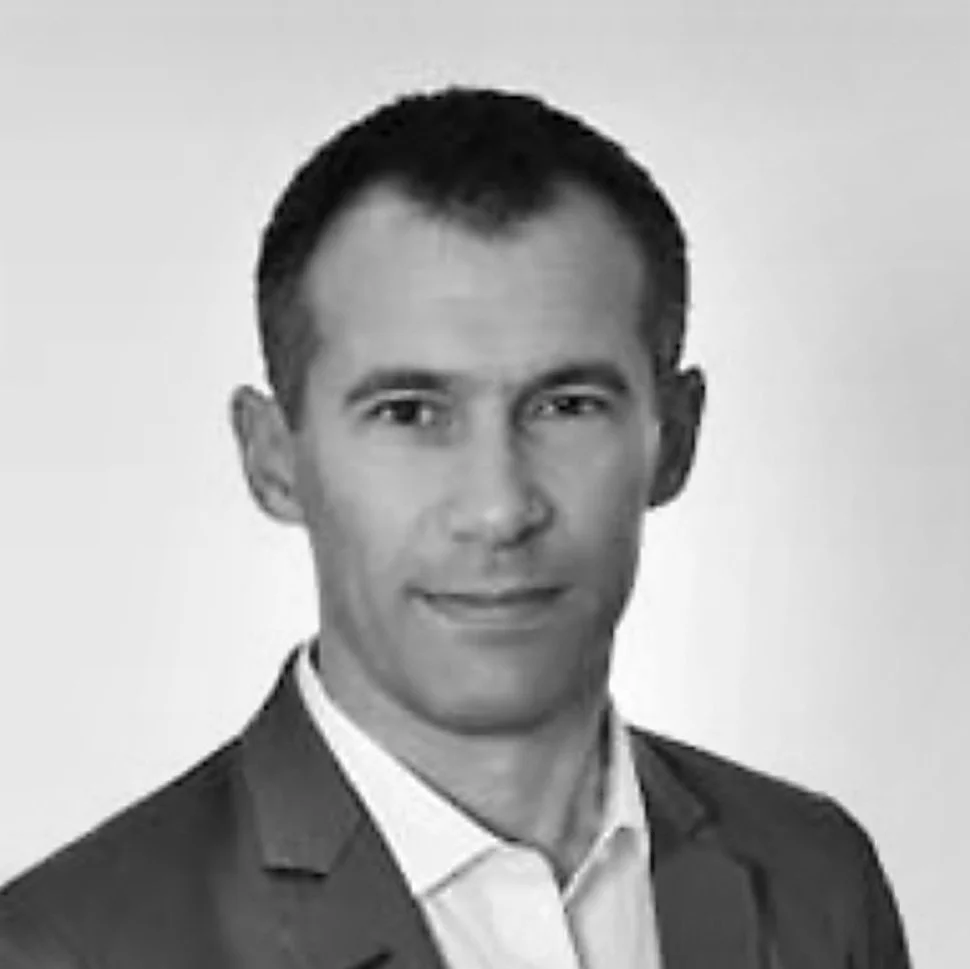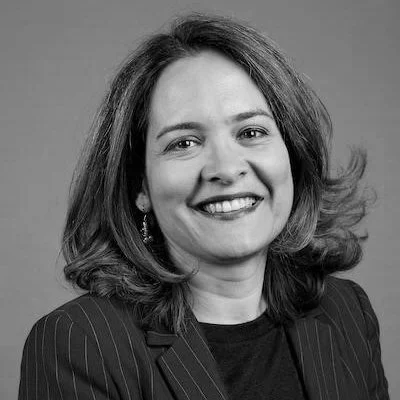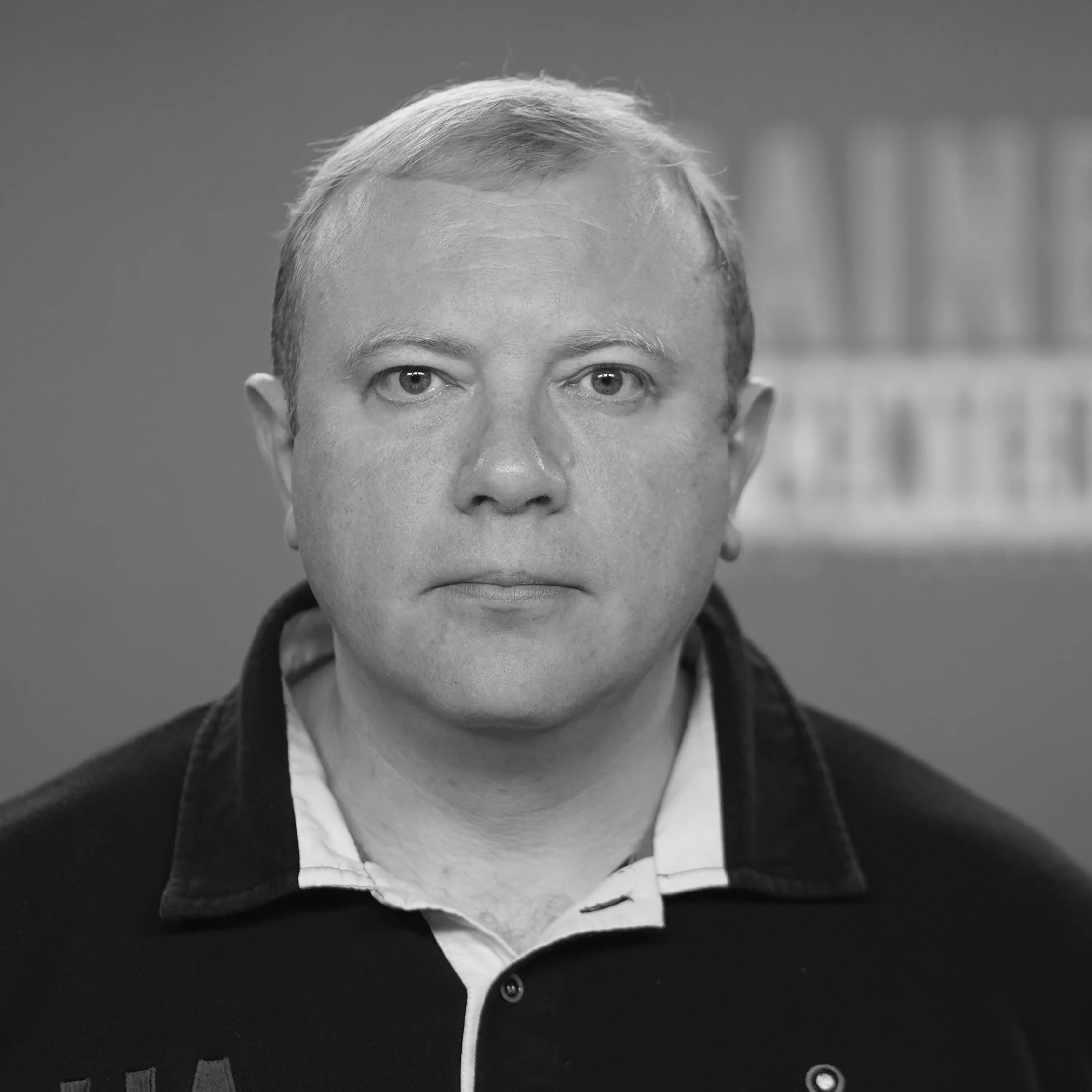The AKEV 31st Annual Meeting
THE ROLE OF THE PUBLIC SECTOR IN WEAK DEMOCRACIES
11 & 12 November 2022
Berlin Global Village (BGV), Am Sudhaus 2, 12053 Berlin.
Publishing Soon:
The AKEV 31'st Annual Meeting Brief
A publication that captures a summary of the meaningful exchanges that took place throughout the AKEV 31st Annual Meeting will soon be available for download.
Sign up to receive the publication by email.
Arbeitskreis Für Entwicklungs und Verwaltung
WHAT IS THE AKEV ANNUAL MEETING?
The AKEV (German abbreviation for “Working Group on Public Sector and International Development”) was founded around 1981 by a group of individuals who were concerned with public sector reform, either academically or in their development policy practice. The establishment of this informal discussion forum was triggered by plans of the German Federal Ministry for Economic Cooperation (BMZ) to adopt a sector paper on “administrative support”. Practitioners employed in various governmental and non-governmental development cooperation organizations found in the working group a neutral venue for joint discussion with academics, ministry officials, etc... Since then, there has been an annual meeting of the working group, the 31st of which is being held in November 2022.
Today, AKEV represents a non-governmental and informal network of scholars and practitioners interested in issues related to government and administration development and cooperation. Participants include staff from governmental and non-governmental development cooperation organizations, academics, administrative practitioners, evaluators, and expatriate staff from projects.
The AKEV 31st Annual Meeting
THE ROLE OF THE PUBLIC SECTOR IN WEAK DEMOCRACIES
This year’s AKEV Annual Meeting is an opportunity to explore the role of the public sector in weak democracies through the lense of international cooperation projects.
Over the past few years, major developments have affected communities and governments leading to increasingly complex challenges, including the COVID19 pandemic, armed conflicts as well as economic and political instabilities. In weak democracies, the weight of these challenges and their repercussions has been intense. This is particularly true in the presence of weak political structures coupled with the absence of effective and citizen-centered policy making processes. In many weak democracies, one key challenge lies in the absence of citizen representation within the political and administrative sphere and how that translates into practice - a lack of policies and services that aim to fulfill the needs of citizens.
The annual meeting is an opportunity to have substantial and analytical discussions with decision makers that can benefit from the creative and open atmosphere of the AKEV Annual Meeting. We invite colleagues and partner institutions from different countries into the debate; including international development experts, academics and practitioners from the public sector. We look forward to creating a space for the exploration of a multi-perspective understanding of the public sector, its roles and the nature of interaction with citizens.
The presentations will focus on three core challenges which influence the efficiency and efficacy of the public administration:
1.Political will and the actual intention to allow the public sector to ensure the society’s development and improvement of public services.
2.The availability of knowledge and data as a basis for decision making while leveraging new technologies.
3.The institutional capacity, including the structures, policies, human and financial resources, allowing the state to achieve its mission.
We invite participants to think together around the following questions:
What challenges do we forsee amidst the environmental, economic and social crises?
What resources can we leverage?
Which intervention strategies have been proven successful in weak democracies?
To what extent is it necessary to build on traditional functions, values, roles and expectations of the public sector?
About The Hosts
BEYOND GROUP & KOMPETUS MANAGEMENT CONSULTING
Every year, the AKEV Annual Meeting is hosted by a different institution. This year’s annual meeting will be hosted by Beyond Group and Kompetus Management Consulting.
Beyond Group is a multinational consulting firm with representation in Cyprus, Germany, Georgia, and Lebanon serving partners and clients in Europe, SWANA, and the Caucuses. The group brings together a diverse team of individuals through its three areas of expertise; Public Policy & Management, Organizational Learning & Development, and Innovation and Technology Integration. In addition, Kompetus Management Consulting, our specialized Sustainability Practice based in Berlin, supports clients and partners to design and scale their sustainability journeys across several sectors. The berlin-based team has been implementing international cooperation projects in Africa, Asia, Latin America and Eastern Europe.
We believe in Meaningful Consulting; a journey that aims at achieving deep change within governments, organizations and communities. Throughout our collaborative journeys, we understand Meaningful Change to be a human-centered endeavor that seeks deep rooted transformations at the level of ideas, systems and practices.
AGENDA
Friday 11 November
-
Arrival and registration of participants to begin the 31st AKEV Annual Meeting
-
Opening note by the AKEV organizational committee including a presentation of the agenda and a session to get to know the participants.
-
Keynote followed by plenary discussion
Keynote Speaker:
Gilbert Doumit
Managing Partner at Beyond GroupExploring the formal and informal institutional power dynamics, cultural factors and processes influencing the role, performance and perception of public authorities. What are the consequences on public sector reform driven by international cooperation?
-
Coffee and tea will be served at the venue
-
Panel and Plenary Discussion.
Slim Khalbous - in person
Former Minister of Education, Professor and Rector of the Agence Universitaire de la Francophonie (AUF)Elene Jibladze - online
Public policy specialist with fifteen years of experience in education system reformsModerated by Omar Abdul Samad, Beyond Group
In most countries, basic social services are jeopardized - especially when public budgets shrink, oversight and quality control are insufficient. In the case of weak democracies, people find different channels to influence the public sector, especially when formal channels of representation and citizens’ engagement are absent.
Based on previous projects, this session brings cases of deliberative and participatory processes that do not necessarily belong to any formal process.
The session will discuss the following questions: What are the interests and/or incentives of policy makers to reform the public sector in weak democracies? How can individuals and groups advocate for policy change within informal and unclear processes of policy making? How can international cooperation actors leverage informal processes of policy making to assist in the formal reform of the public sector in weak democracies?
-
Lunch will be served at the venue
-
Presentation and Plenary Discussion of Case studies of failed and successful experiences.
Salam Yamout - online
Former National ICT Strategy Coordinator in the Office of the Prime Minister of Lebanon between 2010-2016.Francois Boulanger - online
Managing Partner of Nodalis, a leading development consulting firm supporting evidence-based policy-making for public services in low-income and emerging countries.
Alia Moubayed - in person
Emerging Markets EconomistModerated by Omar Abdul Samad, Beyond Group
Data scarcity is considered a major obstacle to the design of policies that respond to citizens’ needs within continuously changing contexts. The absence of data (eg. demographic, economic, spatial, public health, etc..) may be due to a lack of transparency, unreliability of data gathering processes or the limited capacity of public sector institutions.
This panel will explore the challenges of access to data and the implication of data scarcity on the process of policy making.
-
Coffee and tea will be served at the venue
-
Presentation and Plenary Discussion of Case-studies of failed and successful experiences.
Orzala Nemat - online
Research Associate, Humanitarian Policy Group at Overseas Development Institute (ODI).Gilbert Doumit - in person
Partner Consultant & Internationalization Enabler at Beyond GroupModerated by Felix Richter, Kompetus.
While human and institutional capacities remain key success factors for public sector reform, the nature of political and social relations in weak democracies render public institutions obsolete in some cases. While capacity development absorbed a significant part of international cooperation budgets, it is still far from claiming that the public sector in weak democracies is more capable of improving its public services in many countries in the global south. With the emergence of modern technologies, there is a wider opportunity to explore alternative capacity development vehicles that are more efficient and impactful. The session will discuss the following questions: Why capacity development programs within international cooperation did not yield with the impact expected so far? To what extent are “best practices” helpful in weak democracies, without recognizing, adapting and upscaling “informal” practices for capacity development? How can technology be a new lever for efficient, adapted and impactful capacity development programming in weak democracies?”
-
Coffee and tea will be served at the venue
-
Presentation followed by Q&A.
Andriy Shevchenko - online
Co-Founder, Media Center Ukraine; Former Ambassador of Ukraine to Canada (2015-21)Olga Aivazovska
Head of the Board of the Civil Network OPORA NGO, International Electoral Expert, Co-founder of the International Center for Ukrainian Victory and Center for War Crimes Documentation (Warsaw)Mariya Heletiy (Ph.D.)
Deputy Chief of Party, USAID - “Ukraine Civil Society Sectoral Support Activity”A presentation followed by Q&A discussing the challenges facing the public sector in maintaining their level of service while coping with the consequences of the ongoing war.
-
The panels and presentations end. Participants reconvene for an evening mixer event
-
Evening Mixer Event
Misconception and misunderstanding continue to limit opportunities for cooperation and development between actors across the spectrum. This session will include informal discussions, music, arts, and any exchanges to enable an enjoyable evening of engagement for mutual understanding and collaboration.
Saturday 12 November
-
A welcome note by the organizers
-
Open Mic
Dr. Berthold Kuhn, FU-Berlin
Global Perspectives on Megatrends: The Future as Seen by Analysts and Researchers from Different World RegionsDr. Rainer Rohdewohld
Presentation (“Werkstattbericht”) of a research project on "Decentralization, Local Governance, and Localizing SDGs in Asia and Pacific".Fabricio Rodríguez, Arnold-Bergstraesser-Instituts (ABI)
Presentation of BMBF-Research Network Postcolonial Hierarchies in Peace and Conflict.Johannes Uhl, GIZ
Presentation of "A Social Contract Between Tradition and Modernisation – Insights Into Development Co-operation On Public Administration Reform in Jordan".Krzysztof Jaros, Lawyer in Berlin and cooperation partner of Kompetus
Presentation on Trends and Challenges In Good Governance and ESG Regulation In Africa and The Middle East.
This session is reserved for participants to share projects, presentations, lessons, innovations or any piece of information with the participants -
Discussion over the development of AKEV
-
Closing statements by the hosts and participants
MEET THE SPEAKERS
SLIM KHALBOUS
Former Minister of Education, Professor & Rector Of The Agence Universitaire De La Francophonie (AUF)
Slim Khalbous is a university professor in management sciences, elected Rector of the AUF - Agence Universitaire de la Francophonie (dec. 2019) after serving as Minister of Higher Education & Scientific Research in Tunisia, a responsibility he held from July 2016 to December 2019. He also served as Acting Minister of Education for 5 months in 2017. He has been teaching since 1995 in Tunisian universities, and as a visiting professor in several universities in France, Morocco and Lebanon. Professor Slim Khalbous was Director General - Dean Elect of HEC Tunis - University of Carthage from 2011 to 2016, one of the leading business schools in Africa. He holds a PhD in Management Sciences in 2000, and a Master in Business Management in 1994 from the University of Toulouse (France), and a Master in Political Science in 1996 at the Institute of political Studies of Toulouse (France). He has published several articles and research papers in the field of intercultural management, entrepreneurship and marketing communication. He is an activist in several scientific and civil society associations. He was the founder and editor of the Tunisian Marketing Review. In addition, Slim Khalbous was an entrepreneur and founder of two companies in the field of strategic development, market research, communication and ICT.
ELENE JIBLADZE
Public Policy Specialist With Fifteen Years Of Experience In Education System Reforms
Elene is an education policy specialist with fifteen years of experience in the areas of education system reforms and quality assurance. In 2016, Elene defended her PhD in Political Sciences from Central European University (Hungary). Her research concerns institutional transformation processes in fragile democracies in post-socialist context, critical junctures in policy making and higher education reforms. Over the course of the years, Elene has accumulated a solid experience of working in non-governmental (local and international) and governmental organizations. She also has years of experience in project monitoring and evaluation. Between 2013-2015, Elene headed Georgian National Centre for Educational Quality Enhancement, and in 2016 she joined School of Education at Ilia State University, where she heads the MA Program In Education Administration and continues her academic work. In 2019, Elene joined the team of the Diplomatic Institute as a deputy director. She works towards professionalization of the Georgian diplomatic corps and oversees development and quality assurance processes of the certificate programs.
SALAM YAMOUT
Former National ICT Strategy Coordinator In The Office Of The Prime Minister Of Lebanon (2010-2016)
Salam Yamout acted as the National ICT Strategy Coordinator in the Office of the Prime Minister of Lebanon between 2010-2016, where she actively pushed the E-Transactions and Access to Information laws; both enacted finally after she left office. She is a Telecom Engineer by training and an Internet expert, having served with Internet Society as Regional Director for Middle East from 2016-2019, and Board Member of the RIPE NCC between 2013-2019. Throughout her career, Salam held various roles with the private sector, public sector, and international organizations (EU, UNDP). She also held board positions with national NGOs. She was active during the October 2019 Revolution in Lebanon. Salam holds a Master of Business Administration (MBA) from Ecole Supérieure des Affaires (ESA) in Beirut and a Master of Science in Electrical Engineering from the University of Arizona
FRANCOIS BOULANGER
Managing Partner Of Nodalis, A Leading Development Consulting Firm Supporting Evidence-Based Policy-Making For Public Services In Low-Income And Emerging Countries
François Boulanger is a Managing Partner at Nodalis. Nodalis is a Paris-based strategic, institutional, financial and economics advisory firm in the fields of public service delivery and infrastructure development in low-income and emerging countries. François has been leading Nodalis's local government, mobility, solid waste management and climate change practices since 2014. An engineer and economist by training, he has 25 years of international experience, including 7 years as a Finance Manager for a European public transport operator, and 10 years at the World Bank where he was a Senior Urban Economist. He also teaches a workshop at Paris's School of Political Science, for which he puts Master-level students in the position of a consultant asked to formulate policy recommendations on decentralization in a low-data context.
ALIA MOUBAYED
Emerging Markets Economist
Alia Moubayed is an experienced economist and policy practitioner. She is currently the Chief Economist and strategist for the Middle East, North Africa, and Pakistan at a London-based investment bank. Prior to that, she was the director of geo-economics and strategy at the International Institute for Strategic Studies, and Chief Economist for the MENA region at Barclays. She also worked at the World Bank as a senior economist covering Indonesia and countries in the Western Balkans after joining the Young Professionals Program, and held policy responsibilities in various economic institutions of the Government of Lebanon including the Central Bank, Ministry of Economy and Trade, Ministry of Industry, and Council for Reconstruction and Development. Alia holds a BA in Economics and an MBA from the American University of Beirut, as well as a Master equivalent in Public Policy and Public Administration from the Ecole Nationale d’Administration (ENA) in France. She is also the founder of AWEAMENA – the Association of Women in Economics Across the Middle East and North Africa aimed at promoting the role of women in economic policy making in the region.
ORZALA NEMAT
Research Associate, Humanitarian Policy Group At Overseas Development Institute (ODI)
Orzala Nemat is an internationally-known Afghan scholar & think tank leader. She is an expert in political ethnography, holding a PhD in Development Studies from the School of Oriental and African Studies (SOAS) and an MSc in Development Planning from the University College London (UCL). Between 2016 and 2022, Orzala served as the Director of Afghanistan's top research think tank, the Afghanistan Research and Evaluation Unit (AREU). Prior to this, she worked briefly as the Afghan President’s advisor on sub-national governance. An expert in political ethnography, and with a PhD in Development Studies, Orzala Nemat has founded, led and worked with various grassroots, national and international organizations. She was the acting chairperson of Open Society Foundation's Afghanistan Advisory board in Afghanistan until July 2021 and is currently a Trustee for Afghanaid, a British charity working in Afghanistan. Orzala is a Chevening Scholar from 2006, was selected as a Young Global Leader at the World Forum in 2009, Yale Greenberg World Fellows in 2008 and is a recipient of the Isabel Ferror Award for Women’s Education and the Amnesty International Award for Humanitarian Aid to Children and Women in the year 2000. Orzala Nemat is currently engaged in various advisory and research projects on Afghanistan’s humanitarian and development situation and is a regular speaker on international media and at conferences in regard to Afghanistan.
ANDRIY SHEVCHENKO
Co-Founder, Media Center Ukraine; Former Ambassador of Ukraine to Canada (2015-21)
Andriy Shevchenko is a prominent Ukrainian politician, diplomat, journalist, and civil activist. In 2015-21 he served as the Ukrainian Ambassador to Canada. Prior to that, he was a Member of the Ukrainian Parliament, winning seats in 2006, 2007, and 2012. He served as the Chairman of the Free Speech Committee and the 1st Deputy Chairman of the Human Rights Committee. Andriy is the author of the Law on Access to Public Information and was an active participant of the Euromaidan Revolution of 2013-14. As a seasoned journalist, he helped to establish the 5th Channel, the first 24/7-news channel in Ukraine, and became the face of the 2004 Orange Revolution for viewers. After Russia re-invaded Ukraine in 2022 Mr.Shevchenko co-founded Media Center Ukraine, assisting foreign journalists, covering the war.
MEET THE MODERATORS
Omar Abdel Samad
Partner Consultant & Impact Enabler At Beyond Group
Omar Abdel Samad is a Founding Partner and Consultant at Beyond Group since 2010 with more than 15 years of experience as a consultant and advisor in the field of public management, governance and policy development working with numerous institutions in the private, public and non-profit sectors. Omar has worked with ministries, municipalities and other public institutions across the MENA region, the GCC and Africa on policy research and development, strategic planning and capacity development projects. He currently leads in Beyond Group on multiple initiatives focused on urban, economic, and local development policy design with a main focus on designing and enabling stakeholder engagement processes at a city and nation-wide level.
Felix Richter
Founder & Managing Director of Kompetus Management Consulting
Felix Richter is a trained economist and founder and Managing Director of Kompetus. He has served as a consultant since 1996 both in Germany and on international assignments throughout Europe, Asia, Africa, and the Americas supporting partners and clients in across the public sector, private organizations as well as non-profit organisations. Felix is a certified facilitator and believes that facilitation is a craft which has the potential to unlock the hidden potential of organisations. At the start of his career, Felix worked as a consultant for the private sector and accompanied the transformation of the Deutsche Post from a state company to a private stock company in a managing position. He has taught organisational change and consulting methods at the graduate schools of the University of Merseburg as well as Potsdam. Since 2015, Felix has been training in dealing with individual and organisational trauma. His focus areas are institutional reform in the public sector, digitization, as well as cross-sectoral transformation towards sustainability (ESG).
Gilbert Doumit
Partner Consultant & Internationalization Enabler at Beyond Group
Gilbert Doumit is a Founding Partner and Internationalization Enabler at Beyond Group. For the last two decades, Gilbert has been passionate about consulting as an alternative vehicle for meaningful change in governments and communities, with a particular focus on fragile states. He has been advising policy makers, the United Nations, the World Bank, development partners, and civil society organizations to innovate and transform social, economic and governance policies, strategies and systems. Gilbert's multidisciplinary background and expertise has led him to facilitate the Libya National Grassroots Dialogue for a new social contract, to join the trade negotiation team between Kuwait and China as the special advisor to Kuwait Minister of Commerce and Industry, to work on building Tunisia social entrepreneurship ecosystem, to build the capacity of Nepalese women and youth parliamentarians, and to develop Saudi Arabia's Human Rights Strategy. He is a World Fellow (2008) at Yale University and a lecturer at Université Saint Joseph in Beirut, teaching courses on cultural mediation and social entrepreneurship. Gilbert has been interviewed and featured in international policy and media outlets and he is sought after as a public speaker in international conferences such as the Harvard Arab Week, Yale Governance and Local Development Conference, Knowledge Summit in Dubai. Born in Lebanon at the beginning of the civil war, Gilbert believes that politics is the most impactful job if it is driven by integrity, inclusion and innovation. He is a founding member of Injaz Lebanon – a member-nation of Junior Achievement Worldwide, a board member of the Center for Lebanese Studies, and a former candidate to the parliamentary elections in Beirut-Lebanon (2018). Gilbert holds a Bachelor’s in Social and Community Organization from Saint-Joseph University, a Bachelor's in Business Administration from Notre-Dame University, a Master’s of Advanced Management from Ecole Superieure de Commerce de Paris (ESCP), and a Master’s of Business Administration from Ecole Superieure des Affaires (ESA).











